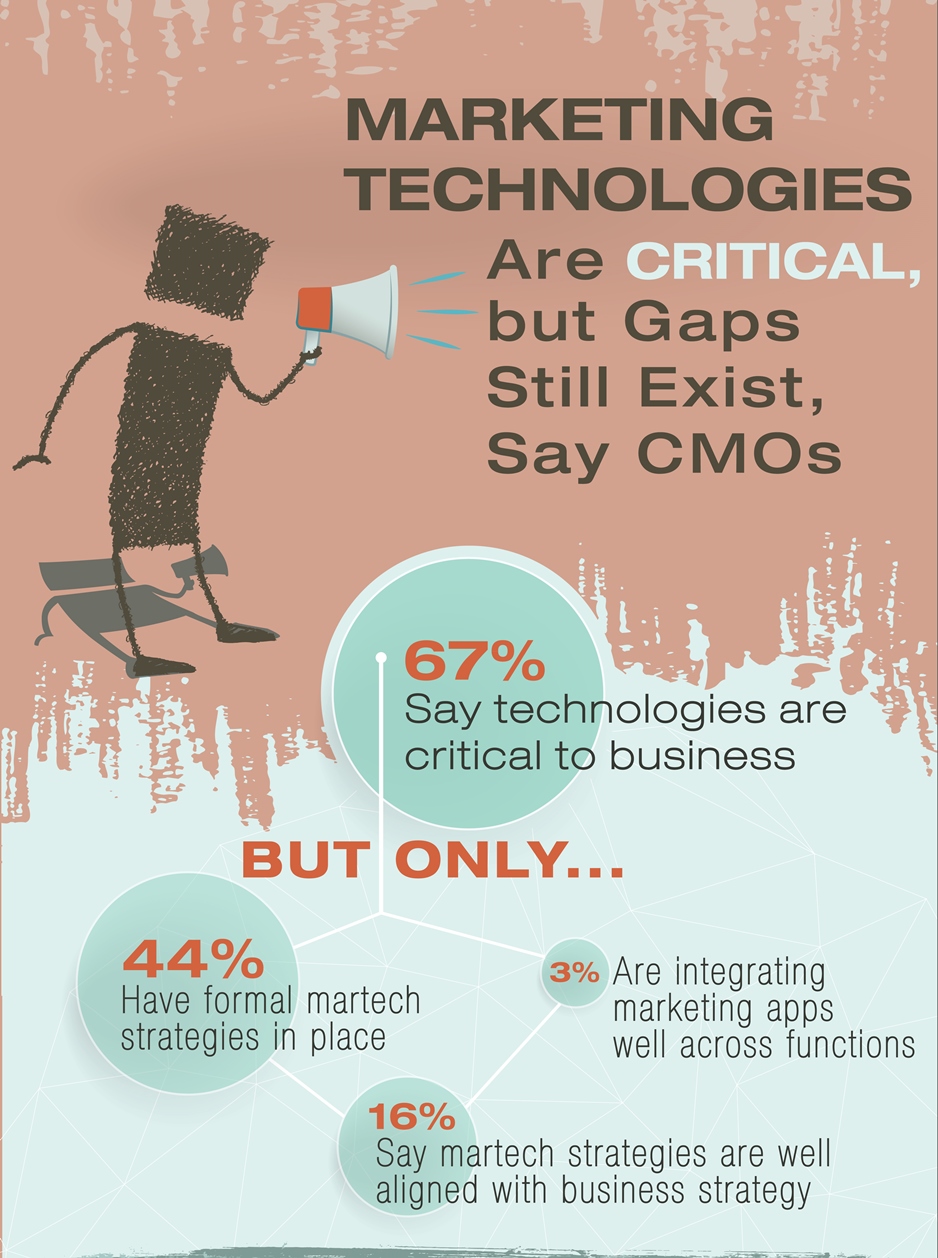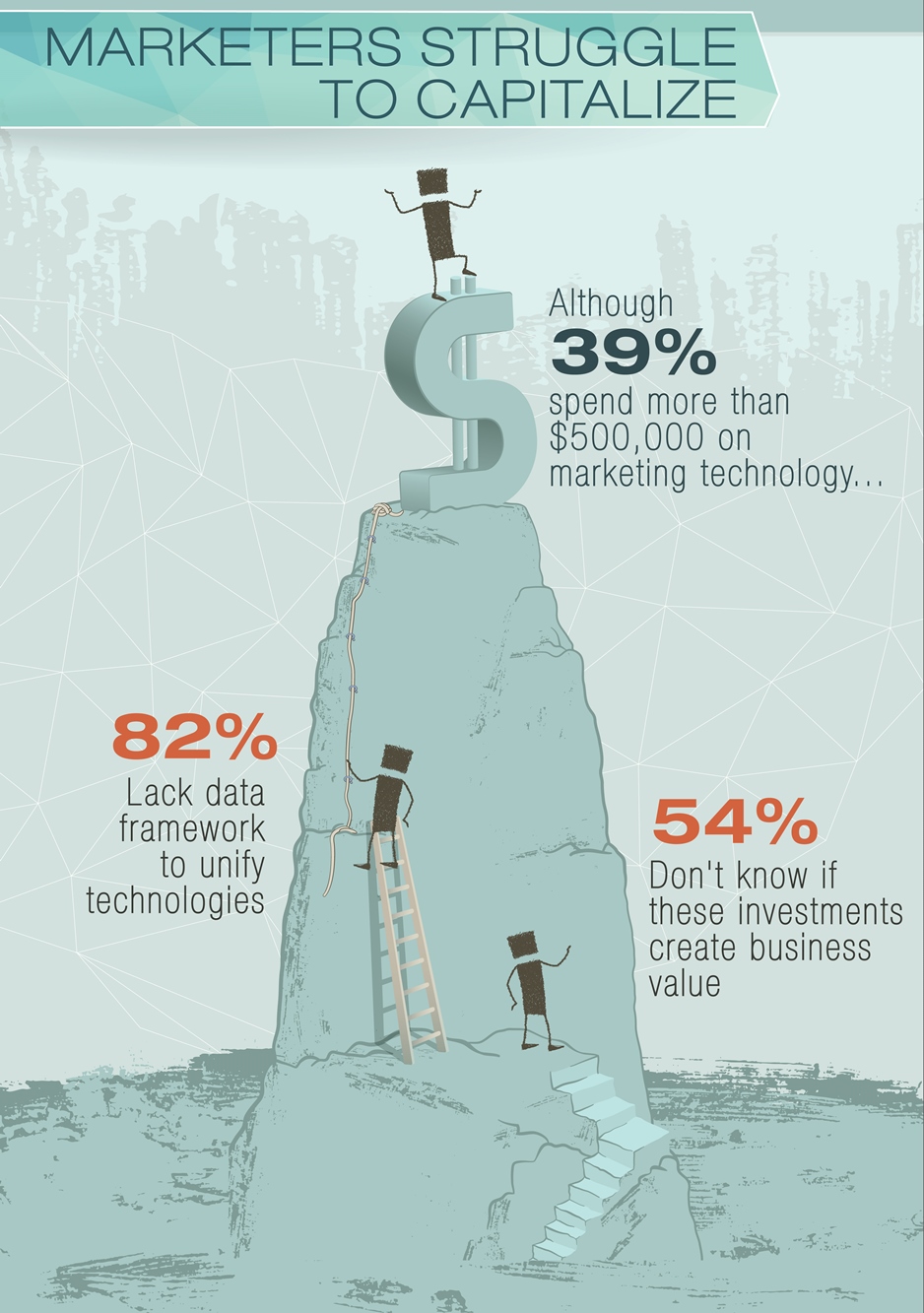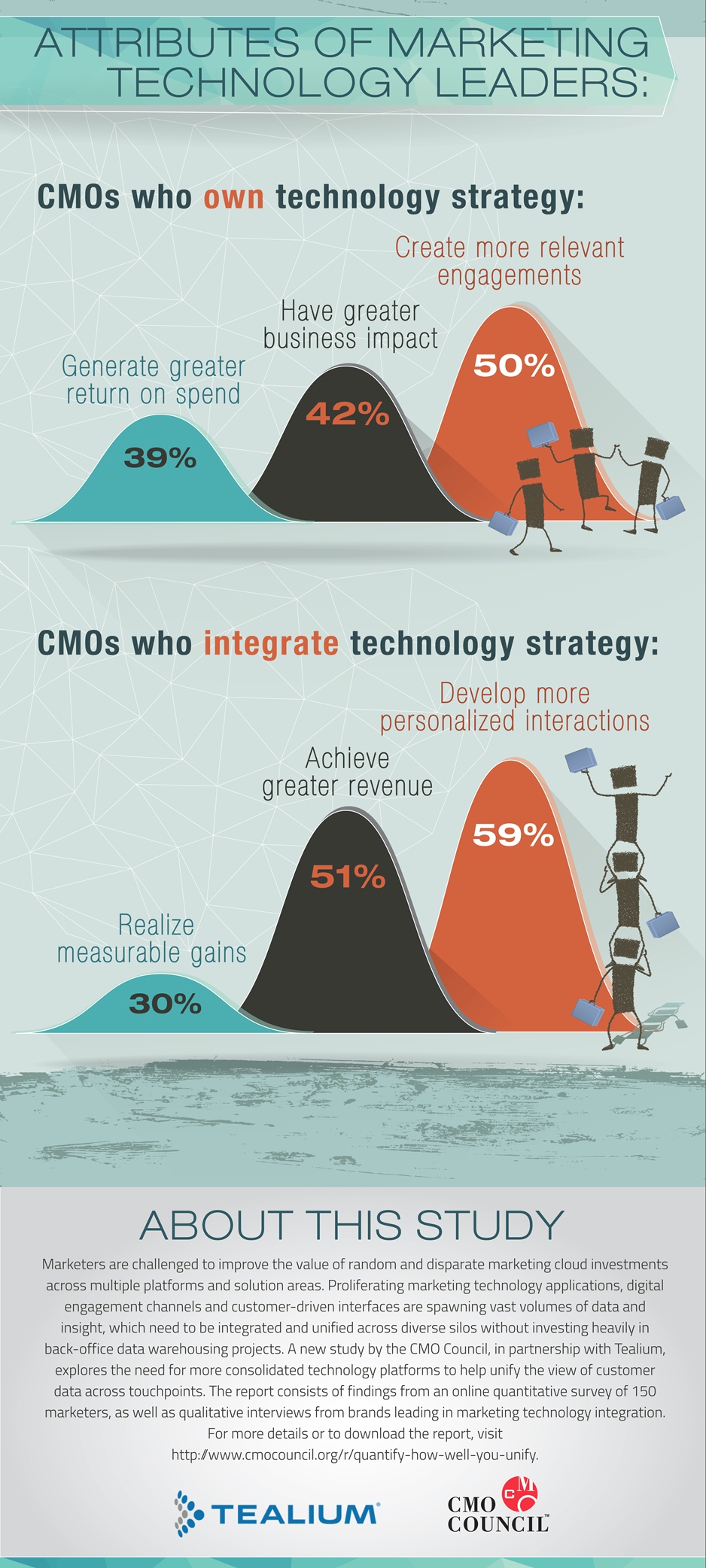- Category: October 2014 - Marketing Automation
 A new study, published by the Chief Marketing Officer (CMO) Council and Tealium, the leader in real-time unified marketing solutions, finds strong links to suggest that improved business and marketing performance are directly related to having a formal roadmap for digital marketing technology acquisition, integration and data unification.
A new study, published by the Chief Marketing Officer (CMO) Council and Tealium, the leader in real-time unified marketing solutions, finds strong links to suggest that improved business and marketing performance are directly related to having a formal roadmap for digital marketing technology acquisition, integration and data unification.
Entitled “Quantify How Well You Unify,” the CMO Council report explores how well chief marketers are taking ownership of digital marketing technology strategies and to what degree they are unifying and extracting value from multiplying customer data sources.
The key points, the study revealed are:
- 42% of CMOs who own their marketing technology strategy see greater business impact than those who do not;
- Those with a formal strategy contribute more to overall revenue and value creation. Half (50%) are able to achieve more targeted, efficient and relevant customer engagements, and 39% achieve greater return and accountability of marketing spend;
- CMOs who manage and integrate technology are achieving measurable business and operational gains. Nearly one-third (30%) of CMOs, who say they manage and integrate technology extremely well or pretty well, are seeing tangible business value, with 51% of those achieving greater revenue contributions.
- Those who integrate a technology strategy within their overall marketing strategy are able to achieve more personalized customer interactions across channels. 59% of those who have integrated this strategy report achieving more targeted, efficient and relevant customer engagements.
Unfortunately, there is a need for master planning when it comes to collecting and analyzing customer-centric data sourced from websites, social networks, mobile apps, online customer communities, and other interactive, self service and self-help channels.
- Less than half (44%) of senior marketers surveyed say they have a formal marketing technology strategy and program to further business goals.
- Just 16% of marketers report their marketing technology strategy is tightly aligned to the business strategy.
- Only 3% of marketers say they are doing extremely well at integrating marketing technologies across functions.
- A surprising 54% of marketers are not sure whether their marketing technology investments are producing tangible business value.
“While 67% of survey respondents believe new marketing technologies are essential or very important to overall marketing group performance and effectiveness, they are being held back by technology overload, too many data sources, and lack of strategic application and integration of disparate point solutions and data,” notes Donovan Neale-May, Executive Director of the CMO Council, whose organization represents 7,500 chief marketers in more than 100 countries.
Hence, Tealium advises chief marketers to architect a comprehensive “martech” strategy that fully integrates all digital marketing functions, data sources and customer touchpoints. By unifying siloed marketing applications, marketers have a much more robust view of their customers and can drive more personalized and impactful experiences that convert visitors into consumers.
“Most CMOs are unaware of how many digital marketing solutions they are using, and a majority have not defined a coherent and comprehensive marketing technology strategy or a path forward,” adds Tracy Hansen, Chief Marketing Officer for Tealium. “Embracing a unified marketing model generates measurable ROI and improved economics; category innovators and best-practice leaders prove this belief time and again.”
Well, although the online research is based on Q3 2014 interactions with 150 senior marketers in North America only, the study observations can be interesting for marketers in Asia as well, revealing the following results:
- Technology is now an essential part of the modern marketing strategy, but the rapid increase in technology options is causing problems—applications and customer data are more fragmented than ever.
- Most CMOs do not have an end-to-end marketing technology strategy; those who do are likely to contribute more to overall revenue, ROI, customer engagement, etc.
- CMOs who own the marketing technology strategy have greater business impact than CMOS who delegate the responsibility.
- CMOs who successfully manage and integrate technology are achieving measurable business and operational gains on their investments (greater returns, smarter spend, less resources, process efficiency, speed to market, reduced costs, greater revenue, etc.).
- CMOs who are good at integrating marketing technologies are seeing better business upside (more visitors, customer acquisitions, conversions, transactions, retention, upsell/cross-sell, repeat purchase, affinity, etc.).
- CMOS who have successfully integrated their technologies are achieving measurable improvements in personalizing customer interactions and delivering better customer experiences across all digital channels.
- The most successful companies have a comprehensive marketing technology strategy and are taking steps to better deploy, manage and integrate their technologies, end-to-end.
- The most successful companies extend their marketing technology beyond marketing to include sales, product development, etc., and they generate a significantly higher business impact.
The 38-page report is available to download for $99 and there will be an upcoming webinar on this topic on October 30, 2014 as well.






